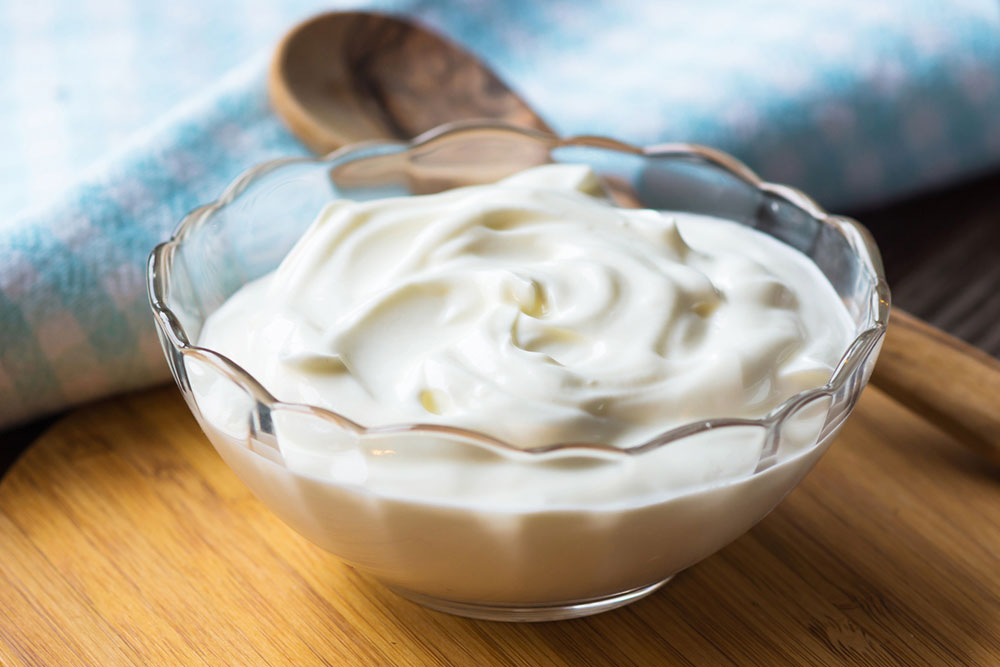Top 6 Natural Remedies for Bacterial Vaginosis
A healthy vagina typically contains various bacteria that balance each other. But, when the region is infected, the bacteria can grow abnormally, causing a bacterial imbalance. This condition is called bacterial vaginosis. It can cause symptoms like an off-white or gray vaginal discharge, unpleasant odor, and even irritation. Upon noticing these symptoms, one should consult a doctor who can recommend appropriate treatment options.
Natural remedies
While the best way to manage infection is with the help of prescription treatment, certain at-home remedies can help boost vaginal health and relieve bacterial vaginosis symptoms.
1. Probiotics
Adding probiotic-rich foods and drinks to daily meals is a natural way to tackle bacterial vaginosis. This is because lactobacilli found in probiotic food play a role in balancing vaginal pH and preventing infections. It also helps the body produce natural bacteria to fight unhealthy bacteria that may cause the infection. So, one can opt for probiotic-rich foods and drinks like yogurt, fermented foods, cottage cheese, and kefir.
2. Boric acid
Studies have suggested that boric acid might help prevent recurring bacterial vaginosis. For instance, boric acid can help lower the pH levels of the vagina and fight infection-causing bacteria in the region. But, it is important to strictly avoid swallowing boric acid and storing it in places where children and pets can easily access it. Also, one must always consult a healthcare professional before using boric acid as a bacterial vaginosis remedy.
3. Garlic
Another way to manage bacterial infection is garlic, which has long been used as a home remedy for various conditions. The herbal root has strong antimicrobial properties. So, one could add garlic, either whole or crushed, to their food to benefit from its healing properties. Alternatively, certain healthcare professionals may recommend using store-bought garlic-based products to treat bacterial vaginosis.
4. Tea tree oil
A common remedy for various ailments, tea tree oil can also help fight bacterial vaginosis. This essential oil contains antifungal and antibacterial properties and can be used on the skin. But , it should be diluted with another solution before application. Also, one should check if they are allergic to the oil by dabbing a very small amount o n the skin and waiting to see if there are any reactions. Also, one should consult their doctor before using the oil and discuss dosage and risks before using it as a natural remedy for bacterial vaginosis.
5. Apple cider vinegar
Apple cider vinegar may be helpful in dealing with bacterial vaginosis. It contains acetic acid, which has proven to be useful in restricting the growth of bacteria, including harmful ones in the vagina. As the remedy is acidic and has antimicrobial effects, one can dilute it in water and use it to rinse the vulva to alleviate symptoms.
6. Vitamin C
The vitamin is an immune system booster. A strong immune system enables the body to fight harmful bacteria and restore natural microbial balance. So, vitamin C is among the natural remedies for bacterial vaginosis one must consider. Also known as ascorbic acid, vitamin C has antimicrobial properties that can fight infections and bacterial vaginosis. To get enough of this nutrient, one could increase their intake of vitamin C-rich foods.
Other management options
While bacterial vaginosis treatment and natural remedies can restore the natural microbial balance in the vagina, a few changes to the daily routine can ease discomfort and prevent recurrent infections.
1. Choose cotton underwear
Wearing cotton or cotton-lined underwear is a great way to keep moisture at bay. Cotton is a light, breathable material. So, it can help the vaginal region stay as dry as possible, reducing the risk of re-infection and irritation.
2. Maintain hygiene
Following good hygiene practices is a key step toward preventing and managing bacterial vaginosis. One should wash the vaginal region regularly with mild, fragrance-free soap and warm water. One should also avoid douching, which could upset the natural balance of organisms in the vagina. One can consult a gynecologist and understand the best practices for maintaining vaginal health.
3. Avoid using harsh laundry detergents
Laundry detergents or even menstrual products with harsh ingredients can often worsen bacterial infections. So, one must avoid using fabric softeners and detergents with enzymes while washing underwear. It is also important to keep the vaginal region free from any sprays, unsuitable tampons, and deodorants when dealing with bacterial vaginosis.
4. Change clothes frequently
If one exercises or sweats excessively, they must change sweaty clothes frequently to prevent the infection from worsening. One must also ensure these clothes are washed after each use.
5. Schedule frequent checkups
While one might already be on a treatment plan for tackling the infection, it is important to schedule frequent gynecologist appointments to check for unexpected complications. Sometimes, a doctor might suggest waiting for a minor infection to go away on its own without treatment. Additionally, getting the vaginal region medically examined often can help one prevent recurrent infections and keep an eye out for other issues.
Bacterial vaginosis typically affects women between the ages of 15 and 44. So, those in this age group should watch for its signs and consult a doctor as soon as they notice any unusual changes.



